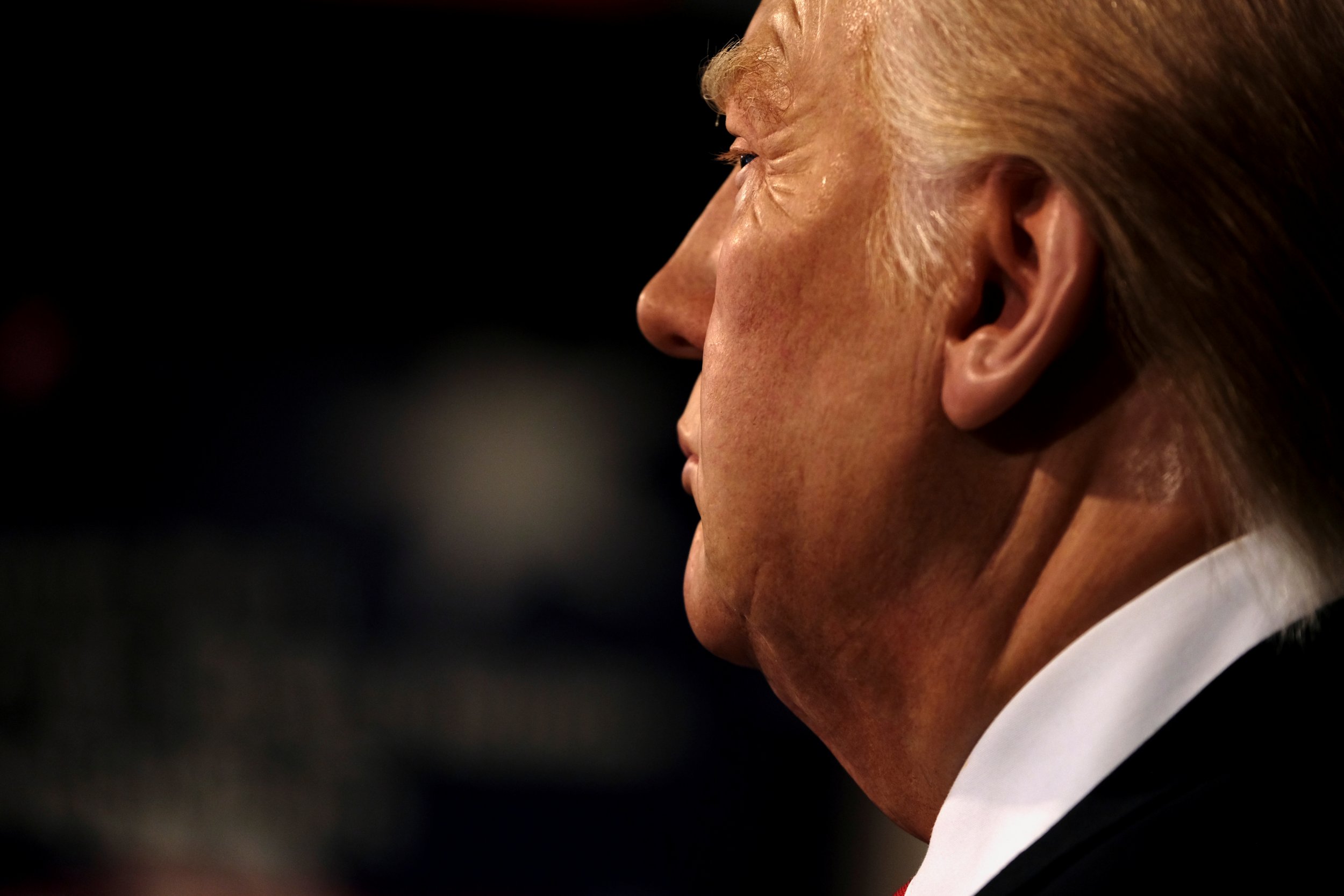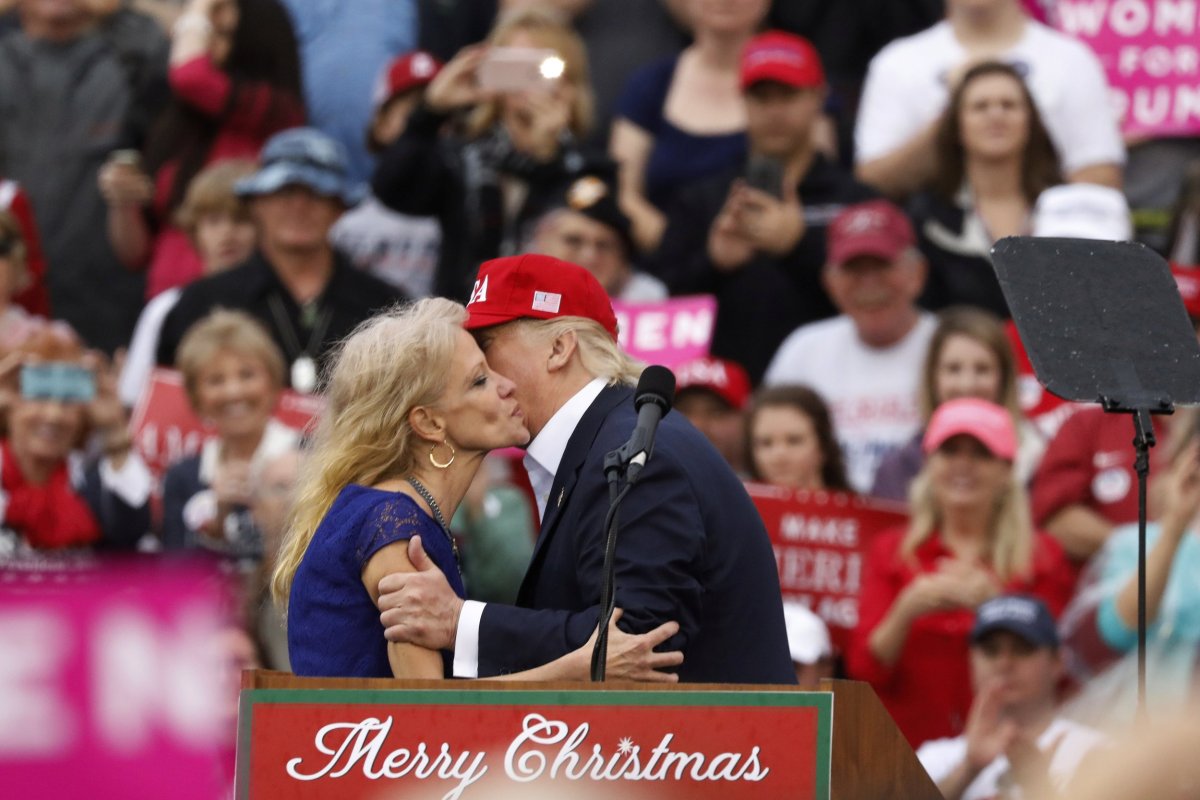
Monarchical rule. A country at the mercy of an impulsive leader. Governed by a small clique of competing personalities. It all sounds a bit like Tudor England. It may be 2017 but it might as well be 1509. On Friday, are Americans going to witness the coronation of King Donald I?
As Donald Trump stands to take the oath of office, some of the parallels with England's Henry VIII will be immediately obvious. The ginger hair. The ample stature. The megalomania verging on paranoia.
Of course, in Henry VIII's day, the choice of leader was down to fate. The quirks of ancient royal succession left England with a leader who was fatally flawed. A man determined to impose himself on Europe but unable to sort out his own domestic affairs (i.e. produce a male heir.)
Trump may also be a quirk of history but one decided at the ballot box. Unfortunately, however, he seems to share many of the same failings. Men determined to be seen as strong leaders yet riven by insecurities. Trump wants to 'Make America Great Again' but is constantly fearful of what the Chinese and Mexicans might be up to.
The irony is that it was America that was so determined to throw off the tyranny of monarchical rule. The forefathers of the United States wanted to pull the country apart from an Old World still dominated by ancient rules and customs. They created the land of the free, a model for modern democracy and a country of opportunity. However, 200 years on, Americans again face the prospect of rule under a tyrannical monarch. Did they ultimately substitute the role of king for president? And if so, is Trump perhaps the ultimate manifestation of the primacy placed in the leader?
So expect to see monarchical rule American-style with all the pomp and ceremony you might expect of a Tudor monarch. Expect too, the same style of government. Courtiers having to guess every second move. What's particularly striking are the similarities between the sets of 'courtiers.'

There are the establishment figures. Could Reince Priebus, Trump's chief of staff, have been Henry VIII's Lord Chancellor? Sir Thomas More ultimately fell as his conscience refused to accept the new religious settlement in England. Similarly, Priebus faces the prospect of having to reconcile himself with the politics of the alt-right. And then there are the outsiders. Kellyanne Conway appears to have the ear of Trump much like Thomas Cromwell had the ear of the king. However, despite their influence, neither could quite shake off the suspicions of an outsider who had disturbed the peace.
Away from the inner circle, newly promoted Defense Secretary General James 'Mad Dog' Mattis resembles the Duke of Norfolk. A man who once said "it's fun to shoot some people" is now in charge of U.S. defense strategy. The duke was similarly hot headed, quick to spoil for a fight and never shy of doing the dirty work (even deposing of his own niece Queen Anne Boleyn.)
Just like Cardinal Worsley, the chief justice is not a Trump pick. However, on the surface, a bust-up like the one between Henry VIII and the cardinal seems unlikely. Both Trump and John Roberts are conservative and have threatened to renege on some of America's biggest civil liberty achievements, including women's rights to abortion and gay marriage. However, will Roberts allow Trump to blast through a conservative manifesto? In later life, Roberts has proved less predictable and keen to safeguard the Supreme Court's integrity within the Constitution. Just like the cardinal's approach to Rome, Roberts will want to see the court doesn't overstep the mark.
And finally, perhaps, there may even be room for one final "courtier." Only this time, a role reversal. For Ambassador Eustace Chapuys, enter stage right Nigel Farage. A master in the political dark arts, Chapuys was sent to England at the behest of the Holy Roman Emperor and was a constant thorn in the English side as it fought with Rome. Equally Machiavellian, could Farage find himself one day as Britain's ambassador to the U.S.? When Trump initially floated the idea (inevitably on Twitter), he faced immediate ridicule; however, anything remains possible. Imagine a desperate Theresa May dispatching Farage to Washington to sort out trade negotiations in a post-Brexit landscape.
So if that's how the two teams shape up, then what can we learn about the future direction of a Trump administration. Of course, during Henry's VIII reign, policy was dominated by the kingdom's relationship to Rome, sparked by the failure of his first marriage. An irrevocable spilt occured, followed by the English Reformation. Henry VIII decided to free himself from the yolk of the Roman Catholic Church and subsequently set England on its own course. Is Trump capable of doing something similar? Not on matters of religion this time, but matters of defense instead.
During the campaign trail, Trump was forthright on the future of NATO, asking members to contribute more to its total defense costs. Like much of his campaign rhetoric, he has subsequently sought to tread a more conciliatory tone. However, doubts remain over Trump's vision for America in the world, and in particular, for one of the most important building blocks for peace in the West over the last 60 years. Will Trump share the commitment of his predecessors? Or will he seek to tear up an historic agreement if America fails to get a better deal?
All this is probably not what the American forefathers had in mind when they sought to give birth to a new nation. But should we be surprised? America's sense of self has been rocked. For many, the cult of leader proved too tempting. No matter how flawed, people have placed their faith in a supreme leader once again. The king is dead, long live the king. Only this time the voters have chosen.
Mike Alhadeff is a planner at creative advertising agency Grey London.
Uncommon Knowledge
Newsweek is committed to challenging conventional wisdom and finding connections in the search for common ground.
Newsweek is committed to challenging conventional wisdom and finding connections in the search for common ground.
About the writer
To read how Newsweek uses AI as a newsroom tool, Click here.








